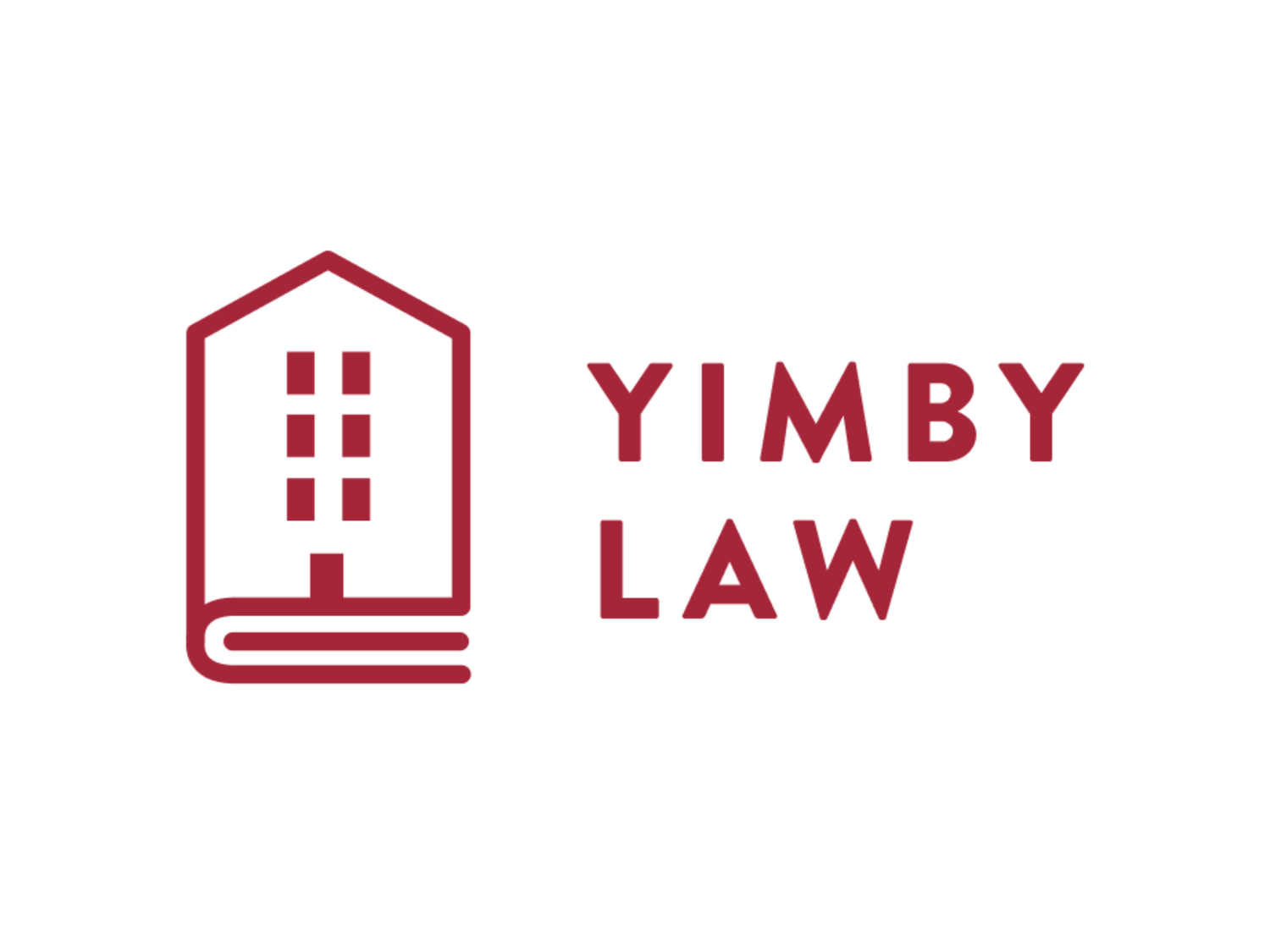Press Release: YIMBY Law Sues San Francisco and Los Angeles for Violating California Housing Laws
/Contact: Jae Garner
SAN FRANCISCO, CA –YIMBY Law, the legal arm of YIMBY Action, a leading pro-housing advocacy organization in the “Yes In My Backyard” movement filed a lawsuit today against the City and County of San Francisco for violation of CEQA, the Housing Accountability Act (HAA), the Housing Crisis Act of 2019 (SB-330), and the Permit Streamlining Act (PSA). The lawsuit asserts that the San Francisco Board of Supervisors illegally overturned the 495-unit,“469 Stevenson Project” after four years of planning and approval by the San Francisco Planning Department, based on vague claims of “inadequate analysis” in the CEQA review rather than on documented findings as required by law.
“YIMBY Law is determined to see that local jurisdictions implement the laws we worked so hard to help pass,” said Sonja Trauss, Executive Director of YIMBY Law, “today’s filing is the third in a series against San Francisco and Los Angeles. It’s time for accountability; there will be more to come if cities don’t comply.”
YIMBY Law filed a similar suit against San Francisco in December, 2021 after the Board of Supervisors denied a 316-room group housing project located at 450 O'Farrell, which could have housed as many as 632 people in the Tenderloin neighborhood of San Francisco. YIMBY Law also filed suit in November, 2021 against the City of Los Angeles for illegally thwarting a 67-unit apartment building development in the Canoga Park/Woodland Hills area.
These three housing projects would account for 878 homes, including 173 affordable to households making below the median income, at a time when California is falling well short of the approximately 180,000 new homes needed annually to match population growth. According to the state Department of Housing and Community Development, California’s new housing growth is averaging fewer than 80,000 homes each year.
California’s severe housing shortage is driven in part, because cities historically have not complied with existing state housing laws. Housing projects are often derailed when zoning measures in specific areas contradict a city’s general plan or local politicians deny projects arbitrarily. Legislation passed in recent years includes measures to address these issues with additional oversight. According to Ben Metcalf, Managing Director, Terner Center for Housing Innovation and former Director, California Housing and Community Development Department, “Over the last several years, a series of new state laws have made clear that local governments have to facilitate new housing supply or face the consequences. This comes into stark relief when proposed housing projects that line up with a local government's zoning and existing land use plans face unnecessary delays or denials."
YIMBY Law is suing cities that continue to deny general plan compliant projects. Cities are applying erroneous compliance determinations that are at odds with state law. Under the HAA, the Los Angeles project — which is consistent with the city’s general plan — should not have been denied due to a rezoning requirement. San Francisco’s 450 O'Farrell project denial also is inconsistent with HAA requirements to approve projects that meet objective zoning and general plan standards. Today’s lawsuit against San Francisco challenges whether cities can effectively evade the HAA through project denials under the guise of environmental impact claims.
The YIMBY lawsuits come at a time when cities also are under increased scrutiny by the state of California and its new Housing Accountability Unit at the Department of Housing and Community Development (HCD). HCD was established recently to ensure local compliance with state laws to address California’s severe housing shortage and has expressed its own concerns about the two San Francisco project denials.
According to Laura Foote, Executive Director of YIMBY Action which fought for the new housing legislation and oversight, “It is unconscionable that two of California’s major cities are illegally impeding these new housing opportunities at a time when our state’s housing shortage is at epic proportions. Now more than ever, cities need to be working with the state to adequately address the growing numbers of Californians experiencing homelessness and the damage our housing shortage is causing for the people of California.”
A copy of the filing petition for today’s lawsuit is available here.

